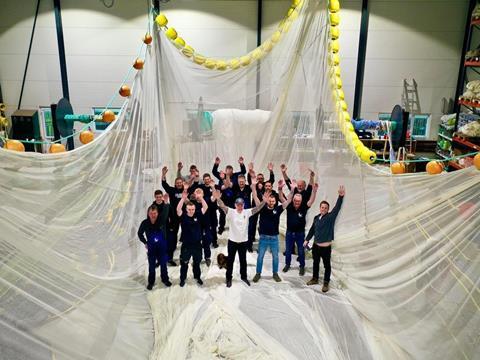
Chase Plastics, Summit Systems, and Ocean Integrity are partnering to collect and recycle LDPE waste recovered from the ocean and hope to ensure a circular economy for recovered plastics.
Ocean Integrity’s patented Micro Plastic Elimination Devices, or MPEDs, were developed alongside Summit Systems and can reportedly retrieve microplastics down to 65 microns – in one instance, an MPED apparently collected 105 tonnes of waste, 87 tonnes of which was plastic, from a river in the Greater Jakarta region.
Indigenous fishermen are also paid three to four times above the minimum wage to collect plastic using MPEDs in various global regions, the companies claim. Ocean Integrity also states that it follows the Blue Ocean Program, which seeks to ensure that all collection efforts benefit indigenous communities and that all collected plastic is recycled.
All Ocean Integrity activities are verified by independent auditors, the company says, and its official app is designed to facilitate transparency and accountability by detailing the entire process, including collector ID, location coordinates, the weight of the collected plastic, truck registration, and how the plastic was recycled.
Overall, the collaboration aims to cleanse the world’s oceans of plastic waste, ensuring it is all recycled and diverted away from landfill and incineration. The rPE generated in the recycling process will be available to purchase straight from Chase Plastics or Summit Systems, with the latter also distributing the product.
David Harris, chairman of Chase Plastics, said: “Initiatives like this demonstrate Sustainability in action. Aside from the environmental benefits, we are supporting a scheme that benefits indigenous communities through deploying traditional fishing skills to help stimulate local economies.”
“We are delighted to have secured the support and recycling expertise of Chase Plastics,” added Ocean Integrity’s managing director, Captain Kieran Kelly. “Our plastic recovery operation is going from strength to strength, not only in removing thousands of tonnes from the oceans, but importantly in the associated reduction of the global carbon footprint and the preservation of plankton and other marine life.”
Prevented Ocean Plastic is aspiring to gather and recycle ‘ocean-bound’ plastic waste into its ‘fully traceable’ plastic material by opening 25 high-volume collection centres across a range of global regions by 2025. It has also worked with Lidl to incorporate recovered ‘ocean-bound’ plastic waste into its sparkling water packaging.
However, a recent study has suggested that there are fewer microplastics in the ocean than previously thought, and that plastic pollution is thicker on the ocean’s surface than beneath it, although it warns that the larger plastic fragments can remain for decades.
If you liked this article, you might also enjoy:
The Lidl approach to packaging sustainability
How did Brazil achieve its 100% aluminium can recycling rate – and can it be replicated in the EU?
Experts have their say on the EU’s Packaging and Packaging Waste Directive revisions
A deep dive into the most important packaging sustainability trends and solutions














No comments yet